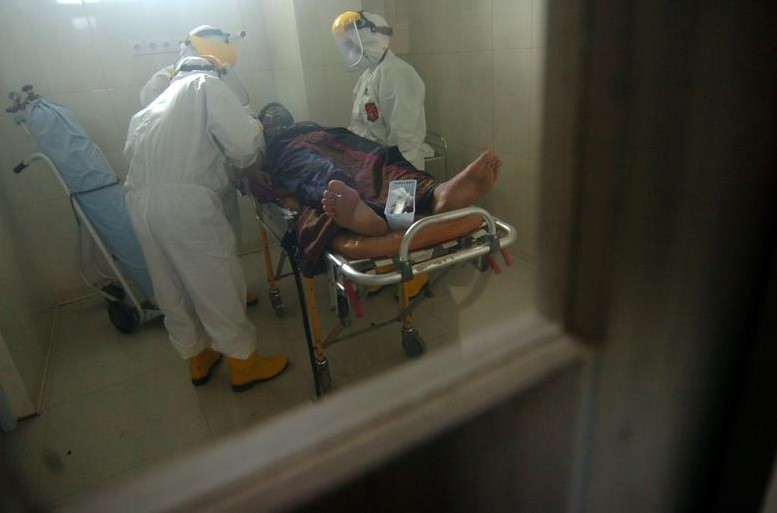Running Out Of Ventilators: Experts Say US Could Be The Next Italy

The United States could follow in Italy's footsteps where health officials choose who gets lifesaving breathing machines and care and who does not.
According to a recent analysis, no state in the country is prepared to handle the rising number of COVID-19 patients. There are too few rooms to treat coronavirus patients if the cases see a sudden surge resembling that of China or Italy.
Experts warn the government to take action. Otherwise, the situation in the US could be overwhelmed.
Hospitals in the country are now running out of beds for patients in the intensive care unit as well as ventilators to keep patients breathing.
The analysis predicts six patients may end up sharing one hospital bed if the nation sees a major spike in COVID-19 cases.
The analysis was based on data from health organizations such as the World Health Organization (WHO) and assumes all 790,000 hospital beds are unoccupied.
Currently, more than 526,600 are occupied. A major spike could see roughly 17 people competing for an open bed.
The government urges everyone to practice social distancing measures, school closures, and work-from-home mandates in a bid to slow the spread and prevent a surge.
"Unless we are able to implement dramatic isolation measures like some places in China, we'll be presented with overwhelming numbers of coronavirus patients," a researcher from the University of Nebraska Medical Center, Dr. James Lawler, said.
He also said hospitals will have to take drastic measures such as reserving resources for patients who are most likely to recover.
The federal government has yet to release estimates on demands the virus might place on hospitals and other healthcare facilities.
More COVID-19 Related Reads:
- Everything You Need To Know About COVID-19 as of March 18
- 'Shelter-In-Place': New Yorkers Urged To Prepare For A Stricter Lockdown
- Important Facts You Should Know About The Global Pandemic Coronavirus
- Research Shows Individuals With Blood Type 'A' May Be More Prone to COVID-19
CoVID-19 cases in the US have soared past 8,500 as of Wednesday. Health care officials and political leaders are now taking urgent actions, including financial relief, to keep the pandemic from overwhelming the system.
Government officials, as well as local authorities, are now scrambling to find more items such as masks and ventilators.
The US death toll, which topped 140, has forced many states to order lockdown procedures. Doctors and nurses have resorted to making their own masks and reusing them. Health officials are begging the general public to observe preventive measures like social distancing.
Experts expect measures to be in place for a year, potentially extending to 18 months.
The pandemic is fueled by two factors:
People with no symptoms unconsciously spread the virus by touching surfaces where the virus can linger and infect other people.
Confusion over the criteria and availability of COVID-19 testing kits.
Health officials continue to warn the public to observe self-isolation even if they aren't showing symptoms. It is suggested to stay at least six feet away from other people and to avoid mass gatherings where the virus can easily be transmitted to others.
Subscribe to Latin Post!
Sign up for our free newsletter for the Latest coverage!
© 2026 Latin Post. All rights reserved. Do not reproduce without permission.















